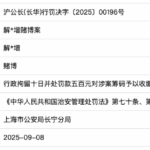On September 4, President Xi Jinping met with Slovak Prime Minister Fico, who was visiting China to attend the commemorative activities marking the 80th anniversary of the victory of the Chinese People’s War of Resistance Against Japanese Aggression and the World Anti-Fascist War, at the Great Hall of the People in Beijing.
Xi pointed out that both China and Slovakia had made enormous national sacrifices and significant historical contributions to the victory of the World Anti-Fascist War. Currently, the world is undergoing profound changes at an accelerated pace, and the international community is in greater need of unity and cooperation than ever before. The two sides should uphold the concept of a community with a shared future for mankind, practice true multilateralism, promote the reform and improvement of the global governance system, and jointly make greater contributions to world peace and development.
Xi emphasized that China highly appreciates Slovakia’s commitment to friendly relations with China and is willing to maintain close high-level exchanges with Slovakia, firmly support each other’s chosen development paths, strengthen exchanges on governance experience, and continuously deepen political mutual trust. The two sides should actively advance practical cooperation in new energy, infrastructure, logistics, and other areas, promote cultural exchanges, and bring more benefits to the peoples of both countries. China hopes that Slovakia will continue to play an active role in promoting the healthy and stable development of China-EU relations.
Fico stated that China had made significant contributions to the victory of the World Anti-Fascist War and the maintenance of world peace. China successfully hosted the commemorative activities for the 80th anniversary of the victory of the Chinese People’s War of Resistance Against Japanese Aggression, sending a powerful message to the world that justice, peace, and the people will prevail, which is admirable. He expressed honor at being invited to witness this grand event in person. Since the establishment of the strategic partnership between Slovakia and China, cooperation between the two countries has progressed rapidly and smoothly. Slovakia attaches great importance to its relations with China, firmly adheres to the one-China policy, and is willing to deepen exchanges on governance experience with China, strengthen cooperation in various fields, further facilitate personnel exchanges, and welcomes more Chinese enterprises to invest and do business in Slovakia. Slovakia supports the basic principles of the global governance initiative proposed by President Xi Jinping and is willing to maintain close communication and coordination with China to make active efforts to reform and improve the global governance system.
Wang Yi attended the meeting.


